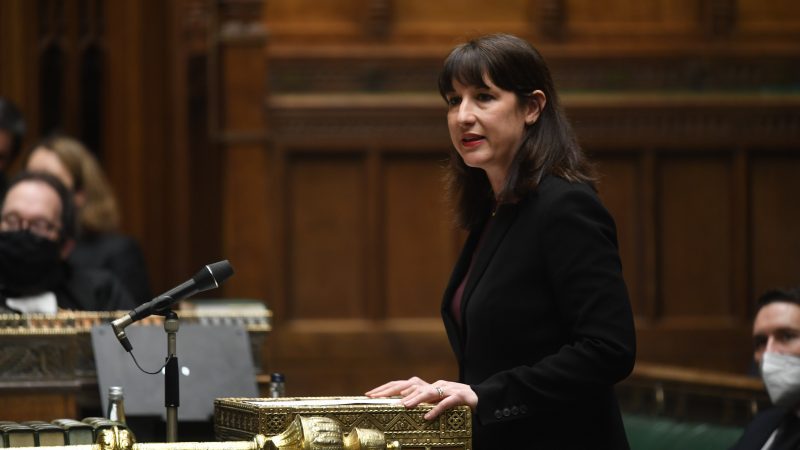
Rachel Reeves has accused the Tories of “diving into working people’s pockets” rather than “fairly” taxing the profits of oil and gas companies after research revealed that changes to the government’s windfall tax could raise nearly £17bn.
Labour will table an amendment to the finance bill on Wednesday that seeks to close three “loopholes” in the windfall tax. Analysis by the party found that changing the design of the levy would raise an additional £16.8bn, which it said could be used to insulate as many as six million homes.
The Shadow Chancellor said: “Britain deserves a government that will make fairer choices in the interest of working people. When it comes to the next election, the question people will be asking themselves is this: do I and my family feel better off under the Tories?
“With choices like this, the answer will be no. Labour would be making fairer choices, fairly taxing the windfall profits of war, instead of diving into working people’s pockets first. And we’d be moving forward on our real plan for growth to create good jobs across our country and get money flowing back into the economy.”
The government announced in May that it would be introducing an energy profits levy on the “extraordinary profits” of the oil and gas sector. Labour had been calling for such a windfall tax to be implemented since January.
Jeremy Hunt revealed in his autumn statement earlier this month that the windfall tax will be raised from 25% to 35% and extended to the end of March 2028. The Chancellor also announced a new temporary 45% levy on electricity producers.
Hunt revealed that the investment allowance included in the windfall tax would be decreased for the majority of investment expenditure, meaning companies can only reduce their windfall tax bill by 29% of funds invested. The discount – which is intended to encourage firms to invest in extraction in the UK – was previously 80%.
The investment allowance is one of the three “loopholes” in the windfall tax that Labour has highlighted. The opposition estimates that scrapping the allowance would raise £10.6bn, based on analysis of Office for Budget Responsibility data.
Labour has also urged the government to backdate the levy to cover excess profits made since January – a change it said would bring in £2.6bn of additional revenue – and to increase the rate of the tax from 35% to 38%, which it said would raise a further £3.6bn.
Responding to the Chancellor’s autumn statement, Reeves said: “The Conservatives have crashed our economy, given up on growth and sent inflation through the roof and, as usual, it is ordinary working people who are paying the price.
“It is a familiar tune. Every mortgage they raise, every cut they make, every tax they hike, the Conservatives are costing you. What have we heard today? Yet more excuses and unfair choices.”
Labour has criticised the government’s decision to unveil “painful stealth tax rises” in the autumn statement. Hunt announced that income tax and inheritance tax would be frozen for a further two years on top of an existing four-year freeze.
The opposition has demanded that the government scrap the non-dom tax status, which allows individuals to avoid paying UK income tax. The party has claimed that abolishing the status would raise £3.6bn each year.
Below is the full text of Labour’s draft amendment to the finance bill.
Review of revenue from the energy (oil and gas) profits levy
- The Chancellor of the Exchequer must, within three months of this Act receiving Royal Assent, publish as assessment of the revenue estimated to be generated from the energy (oil and gas) profit levy in each of the financial years 2021–22 to 2027–28.
- In addition to an assessment of the revenue forecast to be raised by the levy, the assessment must include an evaluation showing the estimated revenue that would, or would have, been raised if each of the following had been the case –
- the qualifying accounting period specified in section 1(3) of the Energy (Oil and Gas) Profits Levy Act 2022 had begun on 3 January 2022,
- the rate of the levy had been increased to 38% by this Act, and
- the amount of additional investment expenditure had been reduced to 0% by this Act.




More from LabourList
Turning the page? Labour’s recovery in the polls show a path to 2029 victory
Restoration announce recommendations for NEC candidates
‘Factionalism at the top is weakening Labour – and handing a gift to Reform’